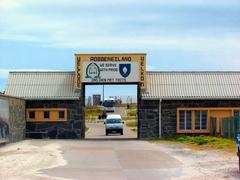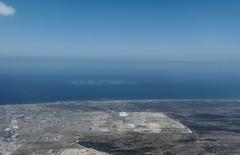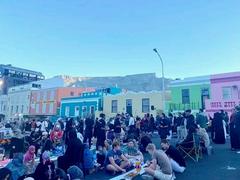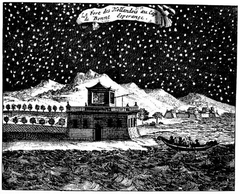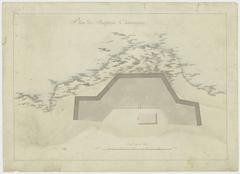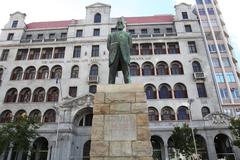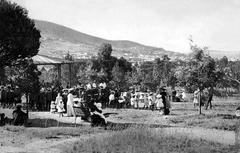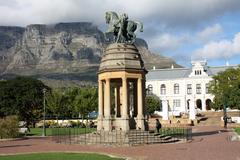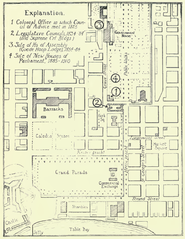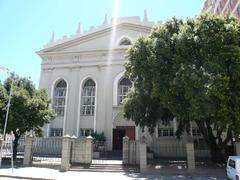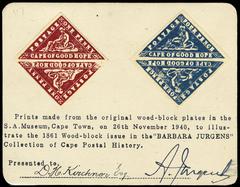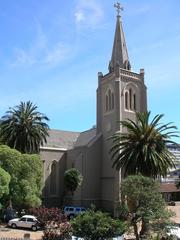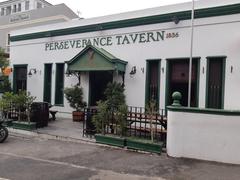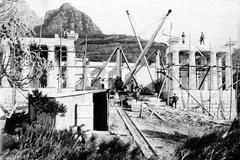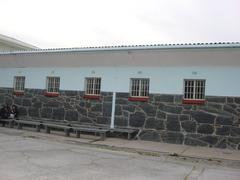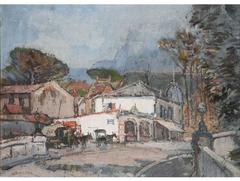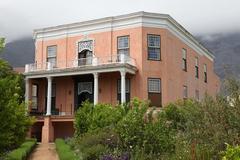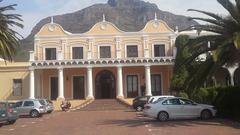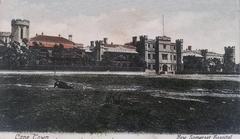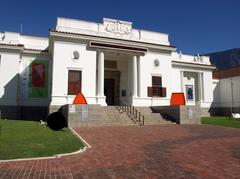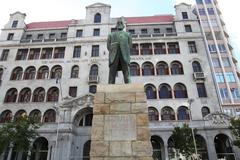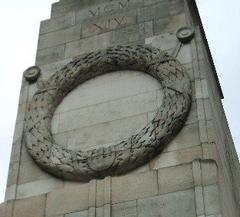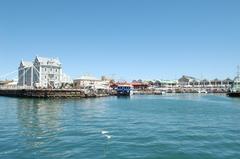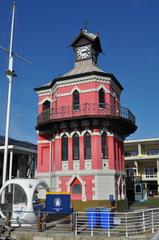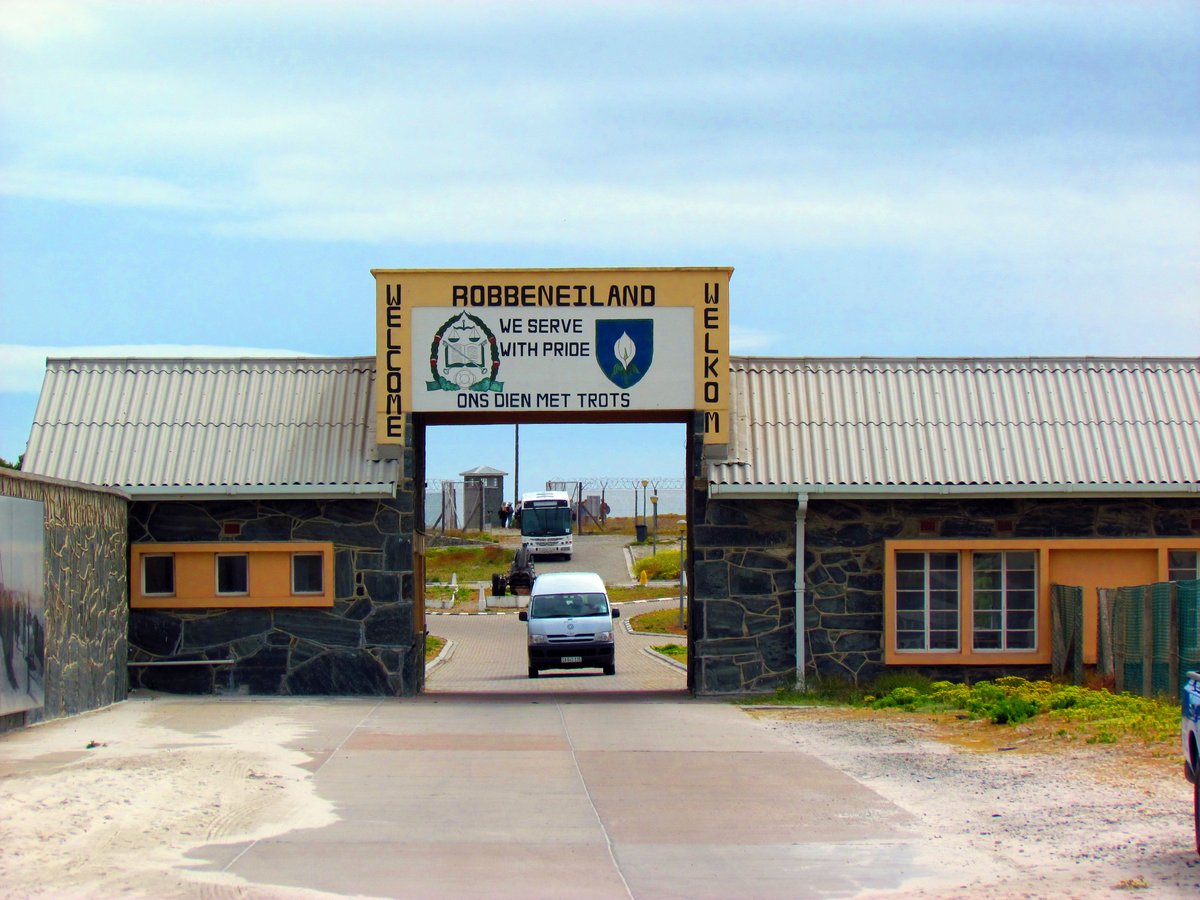
Comprehensive Guide to Visiting Robben Island Prison
Date: 18/07/2024
Introduction
Robben Island, situated just off the coast of Cape Town, South Africa, is more than a scenic landmark; it is a symbol of resilience and the struggle for freedom. Over nearly four centuries, this stark island has witnessed a tumultuous history, serving as a place of exile, a leper colony, and most famously, a maximum-security prison during the apartheid era. Political prisoners, including iconic figures such as Nelson Mandela, were incarcerated here, enduring harsh conditions but never losing hope. Today, Robben Island stands as a UNESCO World Heritage Site, offering visitors a deeply moving journey through history. As a museum and memorial, it provides guided tours led by former political prisoners, granting a poignant, first-hand perspective on the island’s dark past and the enduring spirit of resistance. A visit to Robben Island not only educates but also inspires, reminding us of the sacrifices made in the pursuit of justice and equality (Robben Island Museum).
Table of Contents
- A Brutal Legacy - Centuries of Confinement on Robben Island
- Essential Visitor Information
- Special Events and Photographic Spots
- Frequently Asked Questions (FAQ)
A Brutal Legacy - Centuries of Confinement on Robben Island
Robben Island, a stark and windswept island just off the coast of Cape Town, holds a somber place in South Africa’s history. Far from the idyllic image its name might conjure, Robben Island served as a place of exile and imprisonment for nearly four centuries, its history inextricably intertwined with the country’s turbulent past.
Early Years - Isolation and Exile (17th - 19th Centuries)
Robben Island’s story as a site of confinement began in the 17th century. Its remoteness and harsh conditions made it an ideal location for the Dutch East India Company to isolate unwanted individuals.
- Political Prisoners and Indigenous Leaders: The island became a prison for political exiles, including leaders from Dutch-controlled territories in Asia, as well as rebellious indigenous leaders like Autshumato, a Khoi chief who resisted Dutch colonialism.
- A “Leper Colony”: Tragically, from 1845 to 1931, Robben Island housed a leper colony. People suffering from leprosy were forcibly sent to the island, living in deplorable conditions with inadequate care. The island’s history during this period is a stark reminder of the stigma and mistreatment faced by those with the disease.
- Military Outpost: In the late 19th and early 20th centuries, Robben Island was fortified by the British and used as a military base during the Second Boer War and World War II.
The Apartheid Era - A Prison of Conscience (1961 - 1991)
The darkest chapter in Robben Island’s history unfolded during the apartheid era. From 1961, the island was transformed into a maximum-security prison for political prisoners who opposed the apartheid regime’s system of racial segregation and discrimination.
- Political Prisoners and the Struggle for Freedom: Thousands of anti-apartheid activists, including Nelson Mandela, Walter Sisulu, and Govan Mbeki, were incarcerated on Robben Island. These prisoners endured harsh treatment, forced labor, and psychological torment.
- Symbol of Resistance: Despite the brutal conditions, the prisoners of Robben Island never surrendered their hope for a free and equal South Africa. They organized political education classes, formed clandestine communication networks, and continued their resistance from within the prison walls. Robben Island became a powerful symbol of the struggle against apartheid, both within South Africa and internationally.
- International Condemnation: The plight of Robben Island’s political prisoners drew international condemnation of the apartheid regime. Global pressure and sanctions against South Africa played a significant role in the eventual dismantling of apartheid.
Robben Island Today - A UNESCO World Heritage Site
After the fall of apartheid in 1994, Robben Island underwent a profound transformation. The prison was closed in 1991, and in 1997, the island was declared a UNESCO World Heritage Site, recognized for its powerful testimony to human resilience, courage, and the triumph over adversity.
- Museum and Memorial: Today, Robben Island is a museum and memorial, offering guided tours that provide a poignant glimpse into the island’s history and the experiences of its former prisoners.
- Symbol of Hope and Reconciliation: Robben Island stands as a symbol of hope and reconciliation, a reminder of the power of the human spirit to overcome even the most oppressive circumstances. It serves as a testament to the struggle for freedom and equality, inspiring visitors from around the world.
Essential Visitor Information
Visiting Robben Island is a deeply moving experience, offering a profound understanding of South Africa’s journey from oppression to democracy. It is a place where history comes alive, reminding us of the importance of human rights, justice, and the enduring power of the human spirit.
- Visiting Hours: Robben Island is open to visitors daily from 9 AM to 5 PM. It’s advisable to check the official website for any changes in visiting hours and special holiday schedules.
- Tickets: Tickets can be purchased online through the official Robben Island website or at the Nelson Mandela Gateway at the V&A Waterfront in Cape Town. Prices vary for adults, children, and seniors, with discounts available for group bookings.
- Guided Tours: All visits to Robben Island include a guided tour led by former political prisoners, providing a unique and personal perspective on the island’s history. Tours typically last around 3.5 hours, including the ferry ride to and from the island.
- Travel Tips: Wear comfortable walking shoes and bring water, sunscreen, and a hat. The weather can be unpredictable, so it’s wise to have a light jacket on hand.
- Nearby Attractions: While in Cape Town, consider visiting other historical sites like the District Six Museum, the Castle of Good Hope, and the Iziko South African Museum.
- Accessibility: Robben Island Museum is committed to ensuring accessibility for all visitors. Contact the museum in advance to arrange for any specific needs or assistance.
Special Events and Photographic Spots
- Special Events: Robben Island often hosts special events, including commemorations, educational programs, and cultural performances. Check the official website for the latest updates on upcoming events.
- Photographic Spots: Capture stunning views of Cape Town and Table Mountain from the island. Significant locations for photographs include the prison courtyard, Nelson Mandela’s cell, and the leper cemetery.
Frequently Asked Questions (FAQ)
- What are the visiting hours for Robben Island? Robben Island is open daily from 9 AM to 5 PM. Check the official website for any changes in visiting hours.
- How much are tickets to Robben Island? Ticket prices vary depending on age and group size. Visit the official website for the most up-to-date pricing and to purchase tickets online.
- How do I get to Robben Island? Ferries to Robben Island depart from the Nelson Mandela Gateway at the V&A Waterfront in Cape Town.
- Is Robben Island accessible for people with disabilities? Yes, the museum is committed to accessibility. Contact them in advance to make necessary arrangements.
For more information and to plan your visit, check out the official Robben Island website.
Conclusion
Visiting Robben Island is a profound and transformative experience that offers a unique window into South Africa’s history. From its early use as a place of isolation to its pivotal role during the apartheid era, the island’s story is one of suffering and resilience. The guided tours, especially those led by former political prisoners, provide invaluable insights that bring the island’s history to life. As a UNESCO World Heritage Site, Robben Island continues to stand as a symbol of hope, reconciliation, and the triumph of the human spirit over oppression. Whether you’re exploring the prison cells that once held Nelson Mandela or taking in the natural beauty of the island, your visit will leave a lasting impact, prompting reflection on the importance of human rights and the ongoing fight for equality (Robben Island Museum).
References
- Exploring Robben Island - History, Visiting Hours, and Tickets, 2024, Robben Island Museum (Robben Island Museum)
- Visiting Robben Island - Tickets, Tours, and Travel Tips, 2024, Robben Island Museum (Robben Island Museum)
- Planning Your Visit to Robben Island - Tours, Tickets, and Visitor Experiences, 2024, Robben Island Museum (Robben Island Museum)
